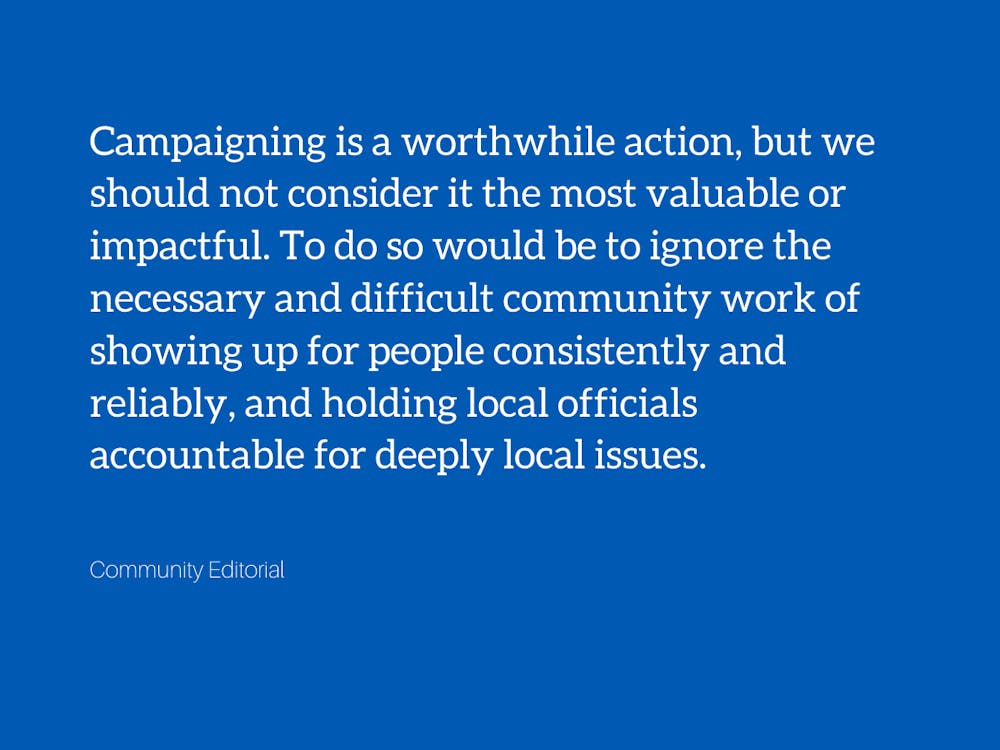Since December 26 when the Durham Housing Authority (DHA) was first notified of elevated carbon monoxide levels at McDougald Terrace Apartments, close to 900 residents have been evacuated and placed in hotels. At least nine residents have been hospitalized for carbon monoxide poisoning, and subsequent investigation has revealed abhorrent sewage, carbon monoxide leaks, and many failed federal inspections at the public housing complex. These revelations have prompted statements from local Representative David Price, the mayor of Durham Steve Schewel, and CEO of the housing authority Anthony Scott. Despite Schewel's effort to silence their protests during a recent City Council meeting, McDougald Terrace residents made their justified anger clear: they have lived in hotels and eaten unsubstantial food for three weeks, away from all they own, and they refuse to bear the violent brunt displacement for longer than they need to.
And yet it is increasingly unlikely that the affected units at McDougald Terrace will be fit for human habitation in early February as initially promised by DHA. The housing authority is rapidly burning through its reserve funds to pay for hotel stays, and though the city has committed funds to support the renovations, McDougald Terrace, like most public housing in the United States, has been slowly starved of funding and left to rot by intentional disinvestment on the part of Congress and the Department of Housing and Urban Development (HUD). Still, conditions in the public housing managed by DHA are especially bad, worse than any other county in North Carolina, and though the spotlight is resting on McDougald Terrace, similar concerns have been raised for years about Cornwallis Road and Hoover Road, two other DHA properties.
For the first time in a long while, public housing has made its way into the national discourse. In November, Representative Alexandra Ocasio-Cortez and Senator Bernie Sanders unveiled a “Green New Deal for Public Housing,” and the Bernie campaign has been active in pushing their platform of Housing for All. There is a tension, though, between the goals of a presidential campaign and the longstanding and immediate needs of public housing tenants. Duke Students for Bernie (Duke4Bernie) sent an email this past week announcing a town hall led by Nina Turner “to discuss the recent Durham housing crisis and rally support for Bernie's transformative Housing for All policy goal.” Turner shared the stage with Ashley Canady, president of the McDougald Terrace Resident Council, and Jillian Johnson, the Mayor Pro Tempore and member of DHA’s Board of Governors.
In the context of the protests and frustrations leading up to the event, it is hard to read the email and not see liberal students supplanting a community in need with a needy campaign. Centering a national politician’s platform during a time of crisis when community advocates and activists feel unheard, disrespected and angry leaves a bitter taste, especially given the ongoing conversations around the role of Duke students in Durham.
“I do not appreciate,” community advocate Joy Spencer said, “people, political campaigns, leaders of any sort, exploiting the current crisis that is going on here in Durham.” In as much as Sanders and his supporters have moved the housing conversation forward, it is easy to imagine why Spencer would not appreciate attention that only seems to coincide with an election year or support for a particular candidate. This is not to say that Housing for All or a Green New Deal would not make a difference to the lives of people in public housing around the country, but that to fixate on a candidate without room to acknowledge the way we have collectively failed to support those same residents does a disservice to the very ideals of a progressive campaign. Some of the messaging after the town hall from local political organizations, engaged directly with this reality, but as questions remain about how liberal city officials, especially those on DHA’s Board, were able to let conditions deteriorate, the point stands.
Regardless of who becomes the next president of the United States, work will continue on these issues and it will come first, as it always has, from the Resident Councils and dedicated community members like Ashley Canady, from restaurants like Zweli’s that provide hot meals, and from the numerous individuals that donate diapers, food, toiletries, and time. Campaigning is a worthwhile action, but we should not consider it the most valuable or impactful. To do so would be to ignore the necessary and difficult community work of showing up for people consistently and reliably, and holding local officials accountable for deeply local issues.
It is through this that we find hope—instead of placing all bets on periodic campaign cycles, we can turn inwards to and recognize the community work that has always been done and will continue onwards, regardless of how national political campaigns pan out—a humbling thought perhaps, at a University that so tirelessly emphasizes the importance of prestige.
Get The Chronicle straight to your inbox
Signup for our weekly newsletter. Cancel at any time.

